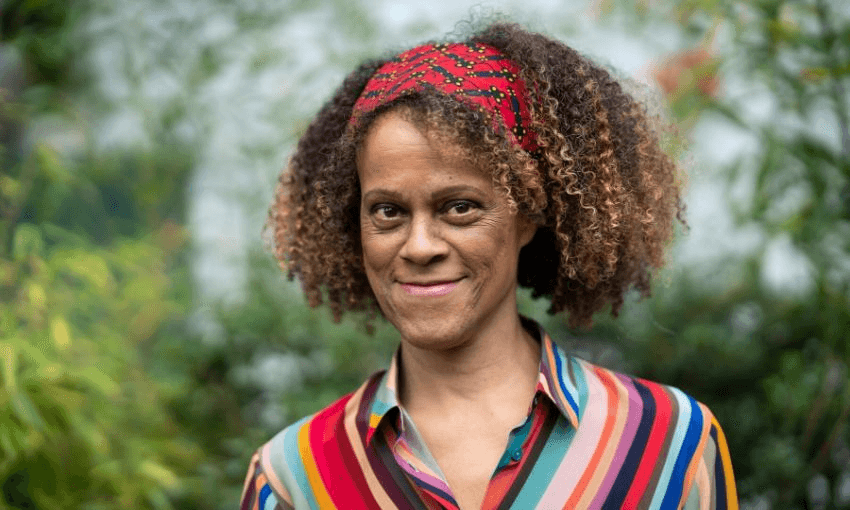Himali McInnes looks past the fact that the first black woman to win the Booker had to bloody share it and focuses on the book – in itself a treasure.
Girl, Woman, Other is the smart, urbane eighth novel by Bernadine Evaristo. Born in London of Nigerian, German and Irish descent, Evaristo is the first black woman to receive the Booker Prize, one of literature’s highest honours. Girl, Woman, Other also made it onto another prestigious list – Barack Obama’s top 19 books of 2019.
The novel spans several decades. Each chapter covers a different character’s story – mostly black, mostly female, plus one non-binary character (Megan/Morgan). No two characters are alike. Their lineage and experiences show ‘Black’ to be a state of being that is heterogenous, multi-faceted, and frankly damn interesting. As Evaristo says, “My mission is to write about the African diaspora. That’s what I’ve done with all my books. And so focusing on 12 black British women was my way of addressing our invisibility and also exploring our heterogeneity.”
There is no overarching narrative, but the lives of the characters intersect through friendships, relationships, or even through chance encounters in public places. Placing a prismatic looking-glass over Britain’s contemporary and colonial history in the Caribbean and Africa, and with one chapter set in America, Evaristo draws out themes of class and privilege.
Written in an engaging, fast-paced and evocative style that could double as spoken word poetry (a lack of punctuation and capitalization puts the reader in sync with the characters’ inner stream-of-consciousness), Evaristo covers themes that she has long been passionate about – race, inclusion, sexuality, politics, feminism.
Evaristo is currently a professor of creative writing at Brunel University London, and in the 1980s helped set up Britain’s first black women’s theatre company.
Likewise, the first character we meet, Amma, is a loud, proud, black lesbian playwright. Amma set up Bush Women Theatre Company in the 1980s in order to create theatre ‘On Our Own Terms or Not at All.’ Now a veteran of the stage and screen, she nonetheless feels imposter syndrome, worrying that her latest play at the National will be rubbished by critics. She recalls her younger days, her fierce rebuttal of uni-dimensional portrayals of black women on stage, “pouring a pint of beer over the head of a director whose play featured semi-naked black women running around on stage behaving like idiots”. Acquiesce to the patriarchy? Hell, no.
Yazz, Amma’s daughter conceived with her gay professor friend Roland, is the miracle who completes her, “something she rarely confided because it somehow seemed anti-feminist”. Yazz is strident in her views, her afro blooms around her head, her squad of friends (The Unfuckwithables) are similarly opinionated and articulate. Despite Yazz’s narcissistic tendencies – she suggests to her mother that she sell her expensive flat in Brixton and move to a cheap seaside town so that Yazz can buy herself a small one-bedroom flat – she is a likeable, quirky nineteen-year-old, with highly relatable relationship dilemmas.
Dominique, Amma’s theatre partner, falls rapidly in love with Nzinga, ignores warning signs, and absconds to America. The relationship between the two women becomes increasingly paranoid and controlling, and ultimately violent, as Nzinga turns out not to be as angelic or ethereal as her statuesque beauty first implies.
Carole is eager to rid herself of her Nigerian heritage. She attends an elite university and becomes an investment banker. However, sometimes she “loves dancing like a warrior queen to frenzied beats of the war-painted shamanistic godfather, Fela Kuti”. Her mother Bummi is now widowed and appalled at how “British-British” Carole is becoming.
The other eight characters are similarly fleshed out, full of quirk and complexity. Hattie, 93, lives on a northern farm and is hardier than all of her younger, querulous relatives. She prefers her living room windswept and doesn’t mind it when the snow blows in. Megan becomes Morgan and considers gender-neutral pronoun alternatives that I had never heard of before: “hirs, aers, eirs, pers, theirs and xyrs”. LaTisha has three kids after three one-night stands. Shirley is a prim school-teacher who is smug at her choice of husband, unaware of the worst sort of betrayal that is happening under her nose.
Evaristo drops plenty of delicious topical references into her prose, from the music of Amr Diab that Yazz and her friends dance to, to Brexit, to ancestry DNA testing (leading to a huge shock and a life-changing meeting for one character). Even Obama gets a mention. The use of patois is particularly fascinating, spanning the vernacular of Nigeria to the Caribbean – “I get pikin wey mus’ chop, I fit do this work, I no dey go anywhere, just give me work, abeg” says one character.
The author says that this novel was her effort to show, through these women: “We are all things and everything. You cannot dismiss us, nor can you easily define us.”
The lucid, snappy prose and topical subject matter made it hard to put this book down. I read it at the hairdressers, on the bus, late at night, during lunch breaks. There was much that resonated with me as a woman of colour. I laughed, felt outraged, and was entertained. Girl, Woman, Other now sits happily on my bookshelf next to other treasured reads that are so good they deserve a second and perhaps third reading.
Girl, Woman, Other by Bernardine Evaristo (Hamish Hamilton, $40) is available from Unity Books.

